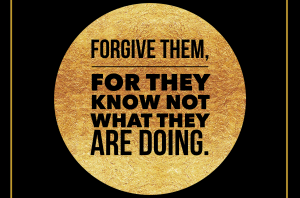
Procrastination is the avoidance of doing a task that needs to be accomplished.[1] It is the practice of doing more pleasurable things in place of less pleasurable ones, or carrying out less urgent tasks instead of more urgent ones, thus putting off impending tasks to a later time. Sometimes, procrastination takes place until the “last minute” before a deadline. Procrastination can take hold on any aspect of life — putting off cleaning the stove, repairing a leaky roof, seeing a doctor or dentist, submitting a job report or academic assignment or broaching a stressful issue with a partner. Procrastination can lead to feelings of guilt, inadequacy, depression and self-doubt.
If you’ve found yourself putting off important tasks over and over again, you’re not alone. In fact, many people procrastinate to some degree – but some are so chronically affected by procrastination that it stops them fulfilling their potential and disrupts their careers.
The key to controlling this destructive habit is to recognize when you start procrastinating, understand why it happens (even to the best of us), and take active steps to manage your time and outcomes better.
If you’ve found yourself putting off important tasks over and over again, you’re not alone. In fact, many people procrastinate to some degree – but some are so chronically affected by procrastination that it stops them fulfilling their potential and disrupts their careers.
The key to controlling this destructive habit is to recognize when you start procrastinating, understand why it happens (even to the best of us), and take active steps to manage your time and outcomes better.
What is Procrastination?
In a nutshell, you procrastinate when you put off things that you should be focusing on right now, usually in favor of doing something that is more enjoyable or that you’re more comfortable doing.
According to psychologist Professor Clarry Lay, a prominent writer on the subject, procrastination occurs when there’s “a temporal gap between intended behavior and enacted behavior.” That is, when there’s a significant time period between when people intend to do a job, and when they actually do it.
How to Overcome Procrastination
Follow these steps to deal with and control procrastination:
Step 1: Recognize That You’re Procrastinating
If you’re honest with yourself, you probably know when you’re procrastinating. But to be sure, take our Are You a Procrastinator? Add to My Personal Learning Plan self test.
Here are some useful indicators that will help you know when you’re procrastinating:
Filling your day with low priority tasks from your To Do List.
Reading e-mails several times without starting work on them or deciding what you’re going to do with them.
Sitting down to start a high-priority task, and almost immediately going off to make a cup of coffee.
Leaving an item on your To Do list for a long time, even though you know it’s important.
Regularly saying “Yes” to unimportant tasks that others ask you to do, and filling your time with these instead of getting on with the important tasks already on your list.
Waiting for the “right mood” or the “right time” to tackle the important task at hand.
Notes:
Putting off an unimportant task isn’t necessarily procrastination: it may just be good prioritization!
Putting off an important task for a short period because you’re feeling particularly tired isn’t necessarily procrastination either, so long as you don’t delay starting the task for more than a day or so, and this is only an occasional event. If you have a genuine good reason for rescheduling something important, then you’re not necessarily procrastinating. But if you’re simply “making an excuse” because you really just don’t want to do it, then you are.
Source: mindtools.com
Would you like to find out how to start a sure bet online business that will allow you to live your life on your own terms?
click here: Yes, I’d like to find out how to start a successful online business today that will allow me to live my life on my own terms.





